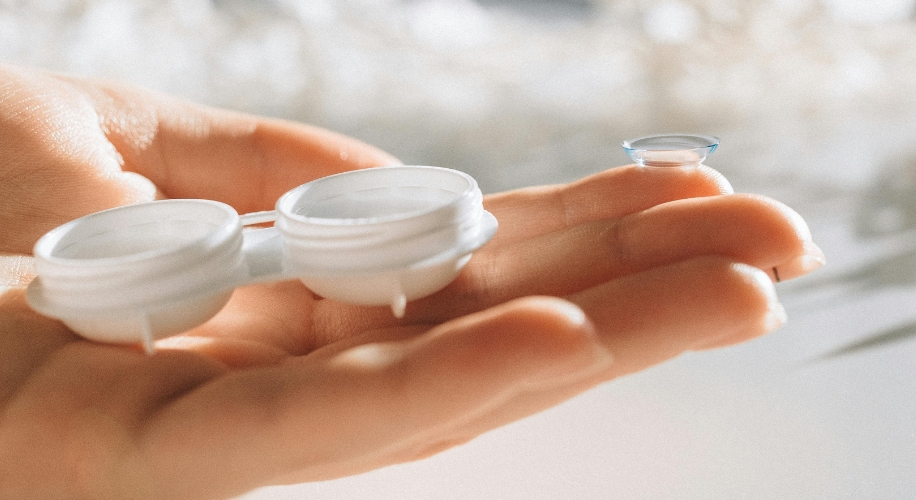Why Biweekly Contacts Might Be the Perfect Choice
- BY Dr. Steven Liem
- IN Eye Care
Contact lenses are a popular and convenient alternative to glasses, offering the freedom to see clearly without the need for frames. When it comes to choosing the right type of contact lenses, the options can be overwhelming. Among the various types available, biweekly contact lenses offer a balanced blend of comfort, cost-effectiveness, and ease of use, and they might be the perfect choice for your vision needs.
Photo by Flávio Santos
What Are Biweekly Contact Lenses?
Biweekly contact lenses are designed to be worn for up to two weeks before needing to be replaced. Unlike daily lenses, which are intended for single-use, biweekly lenses are made to provide long-term comfort and clarity with regular cleaning and maintenance. They typically come in a pack that includes enough lenses to last for a few months, assuming you wear them as directed.
Benefits of Biweekly Contact Lenses
1. Cost-Effective
One of the primary advantages of biweekly contact lenses is their cost-effectiveness. While daily lenses require a fresh pair every day, biweekly lenses only need to be replaced every two weeks. This can significantly reduce the overall cost of your contact lens routine. Additionally, buying in bulk can often lead to savings, making biweekly lenses an economical choice for many.
2. Enhanced Comfort
Biweekly contact lenses are designed with advanced materials that allow for better oxygen permeability. This means your eyes can stay healthier and more comfortable throughout the day. Many biweekly lenses also feature moisture-retaining properties, which help reduce dryness and irritation, especially if you spend long hours in front of screens or in air-conditioned environments.
3. Convenience
Unlike monthly lenses, which require careful usage over a longer time period, biweekly lenses strike a perfect balance between convenience and longevity. This can be particularly beneficial if your vision changes or if you experience occasional discomfort that requires more frequent lens replacements.
4. Improved Hygiene
With biweekly lenses, you have a regular schedule for lens replacement, which promotes better eye hygiene. Frequent changes help prevent the buildup of deposits and reduce the risk of eye infections. By adhering to the recommended replacement schedule, you ensure that your lenses remain clean and effective, contributing to overall better eye health.
5. Variety of Options
Biweekly lenses come in a wide range of options to suit different vision needs. Whether you require lenses for astigmatism, presbyopia, or just standard vision correction, you can find biweekly lenses designed specifically for your condition.
Photo by Vinicius Wiesehofer
Caring for Your Biweekly Contact Lenses
To get the most out of your biweekly contact lenses, proper care and maintenance are essential. Here are some tips to ensure your lenses remain in optimal condition:
- Clean and Disinfect: Always follow the cleaning and disinfecting instructions provided by your eye care professional. This typically involves using a recommended lens solution and storing your lenses in a clean case.
- Avoid Overwear: Stick to the recommended wear schedule to prevent discomfort and potential eye health issues. Overwearing lenses can lead to complications such as dryness and infection.
- Replace as Directed: Be sure to replace your lenses every two weeks or as instructed by your eye care provider. Even if the lenses still feel comfortable, adhering to the replacement schedule is crucial for maintaining eye health.
- Regular Eye Exams: Regular check-ups with your eye care professional ensure that your prescription is up-to-date and that your eyes are healthy. They can also provide guidance on the best lens options for your needs.

Photo by Nataliya Vaitkevich
Biweekly contact lenses offer a great balance of cost, comfort, and convenience, making them an attractive option for many people. If you’re considering switching to biweekly lenses, consult with your eye care professional to determine the right replacement schedule for your eyes and lifestyle.



